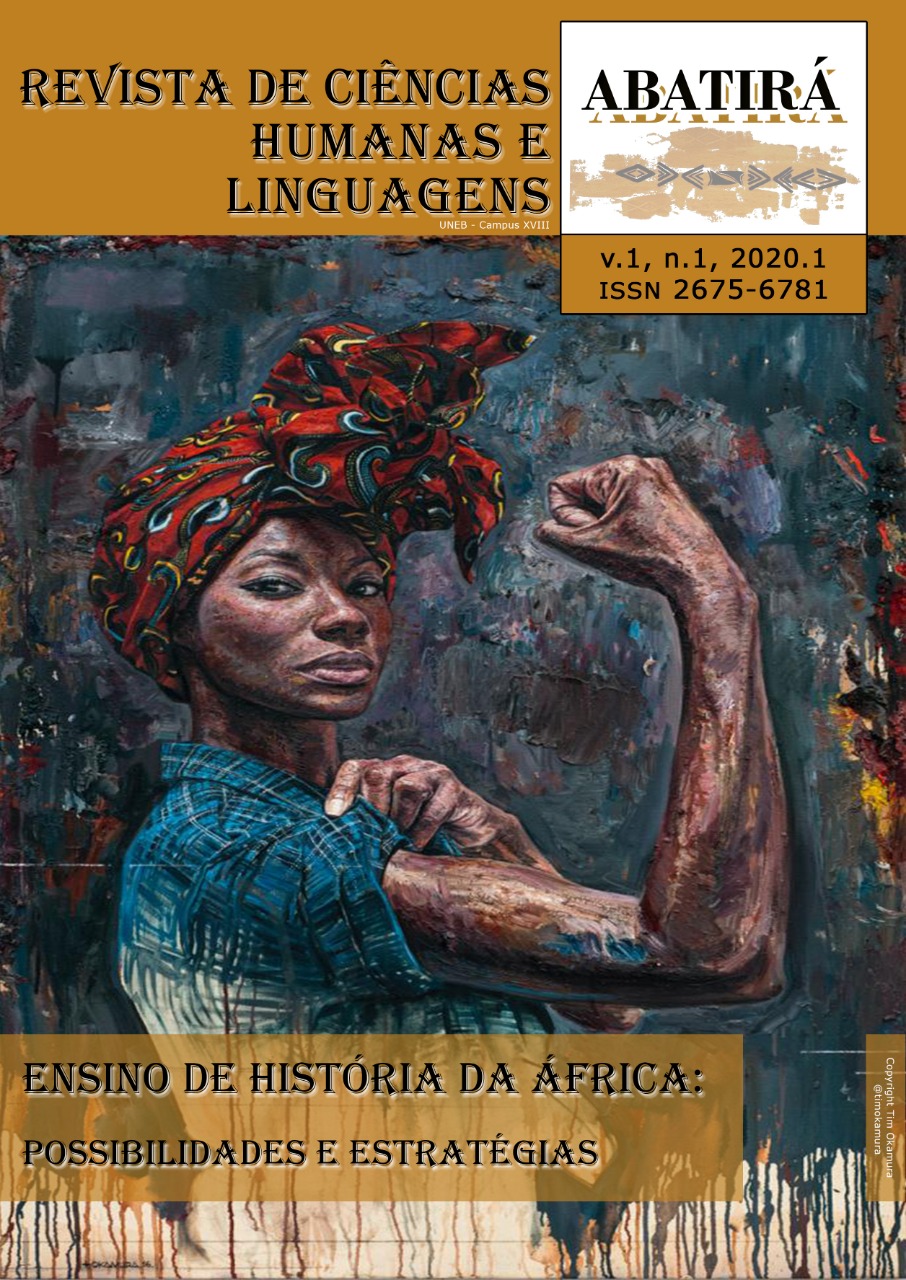O problema de falar por outras pessoas
Palabras clave:
Lugar de fala, Outridade, Linguagem, Sujeito.Resumen
Este artigo objetiva apresentar alguns problemas, estabelecer termos para discussão e evidenciar possíveis caminhos teóricos para a discussão da fala enquanto um ato de enunciar sujeitos e nomear realidades. Publicado em 1991, "The Problem of Speaking for Others" é uma das principais referências para a discussão sobre o conceito de lugar de fala, que ganhou destaque nos últimos anos na cena brasileira.
Descargas
Citas
ALCOFF, Linda. Cultural Feminism versus Post-Structuralism: The Identity Crisis in Feminist Theory. Signs, New York, v. 13, n. 3, p. 405-436, Primavera, 1988.
ANZALDÚA, Gloria. Borderlands: La Frontera. San Francisco: Aunt Lute Book Company, 1987.
BORDO, Susan. Feminism, Postmodernism, and Gender-Skepticism. In: NICHOLSON, Linda J. Feminism/Postmodernism. New York: Routledge, 1989. p. 133-156.
CHRISTIAN, Barbara. The Race for Theory. Cultural Critique, New York, v. 6, p. 51-63, Primavera, 1987.
CLIFFORD, James. On Ethnographic Authority. Representations, New York, v. 1, n. 2, p. 118-146, Primavera, 1983.
CLIFFORD, James; MARCUS, George E. Writing Culture: The Poetics and Politics of Ethnography. Berkeley: University of California Press, 1986.
DELEUZE, Gilles; FOUCAULT, Michel. Intellectuals and Power. In: FOUCAULT, Michel; BOUCHARD, Donald. Language, Counter-Memory, Practice: selected essays and interviews. Ithaca: Cornell University Press, 1977. p. 205-217.
GATES JUNIOR, Henry Louis. Authority, (White) Power and the (Black) Critic: It’s All Greek To Me. Cultural Critique, New York, n. 7, p. 19-46, Outono, 1987.
LUGONES, Maria. Playfulness, “World”-Travelling, and Loving Perception. Hypatia, New York, v. 2, n. 2, p. 3-19, Verão, 1987.
LUGONES, Maria; SPELMAN, Elizabeth. Have We Got a Theory For You! Cultural Imperialism, Feminist Theory and the Demand for the Women’s Voice. In: PEARSALL, Marilyn. Women and Values: Readings in Recent Feminist Philosophy. Belmont: Wadsworth Publishing, 1986. p. 19-31.
MARACLE, Lee. Moving Over. Trivia: A Journal of Ideas, Boston, v. 14, p. 9-12, Primavera, 1989.
MARCUS, George E.; FISCHER, Michael. Anthropology as Cultural Critique. Chicago: University of Chicago Press, 1986.
MENCHÚ, Rigoberta. I... Rigoberta Menchu. Trad. Ann Wright. Londres: Verso, 1984.
RABINOW, Paul. Discourse and Power: On the Limits of Ethnographic Texts. Dialectical Anthropology. New York. vol. 10 n. 1 e 2, p. 1-14, Julho, 1985.
SAID, Edward W. Representing the Colonized: Anthropology's Interlocutors. Critical Inquiry. Chicago. vol. 15 n. 2, p. 205-225, Inverno, 1989.
SPIVAK, Gayatri. Can the subaltern speak? In: NELSON, Cary; GROSSBERG, Lawrence (Org.). Marxism and the Interpretation of Culture. Chicago: University of Illinois Press, 1988. p. 271-313.
TÖRRÖNEN, Jukka. The Concept of Subject Position in Empirical Social Research. Journal for the Theory of Social Behaviour, n. 31, 2001, p. 313-329.
TREBILCOT, Joyce. Dyke Methods. Hypatia, Cambridge. vol. 3 n. 2, p. 1-13, Verão, 1988.
MINH-HA, Trinh T. Woman, Native, Other: Writing Postcoloniality and Feminism. Bloomington: Indiana University Press, 1989.
WILSON, Judith. Down to the Crossroads: The Art of Alison Saar. Third Text, Londres, vol. 10. p. 36. Primavera, 1990.
Descargas
Archivos adicionales
Publicado
Cómo citar
Número
Sección
Licencia

Este trabalho está licenciado sob uma licença Creative Commons Attribution 4.0 International License.Você é livre para:
Compartilhar - copia e redistribui o material em qualquer meio ou formato; Adapte - remixe, transforme e construa a partir do material para qualquer propósito, mesmo comercialmente. Esta licença é aceitável para Obras Culturais Livres. O licenciante não pode revogar essas liberdades, desde que você siga os termos da licença.
Sob os seguintes termos:
Atribuição - você deve dar o crédito apropriado, fornecer um link para a licença e indicar se alguma alteração foi feita. Você pode fazer isso de qualquer maneira razoável, mas não de uma forma que sugira que você ou seu uso seja aprovado pelo licenciante.
Não há restrições adicionais - Você não pode aplicar termos legais ou medidas tecnológicas que restrinjam legalmente outros para fazer qualquer uso permitido pela licença.





